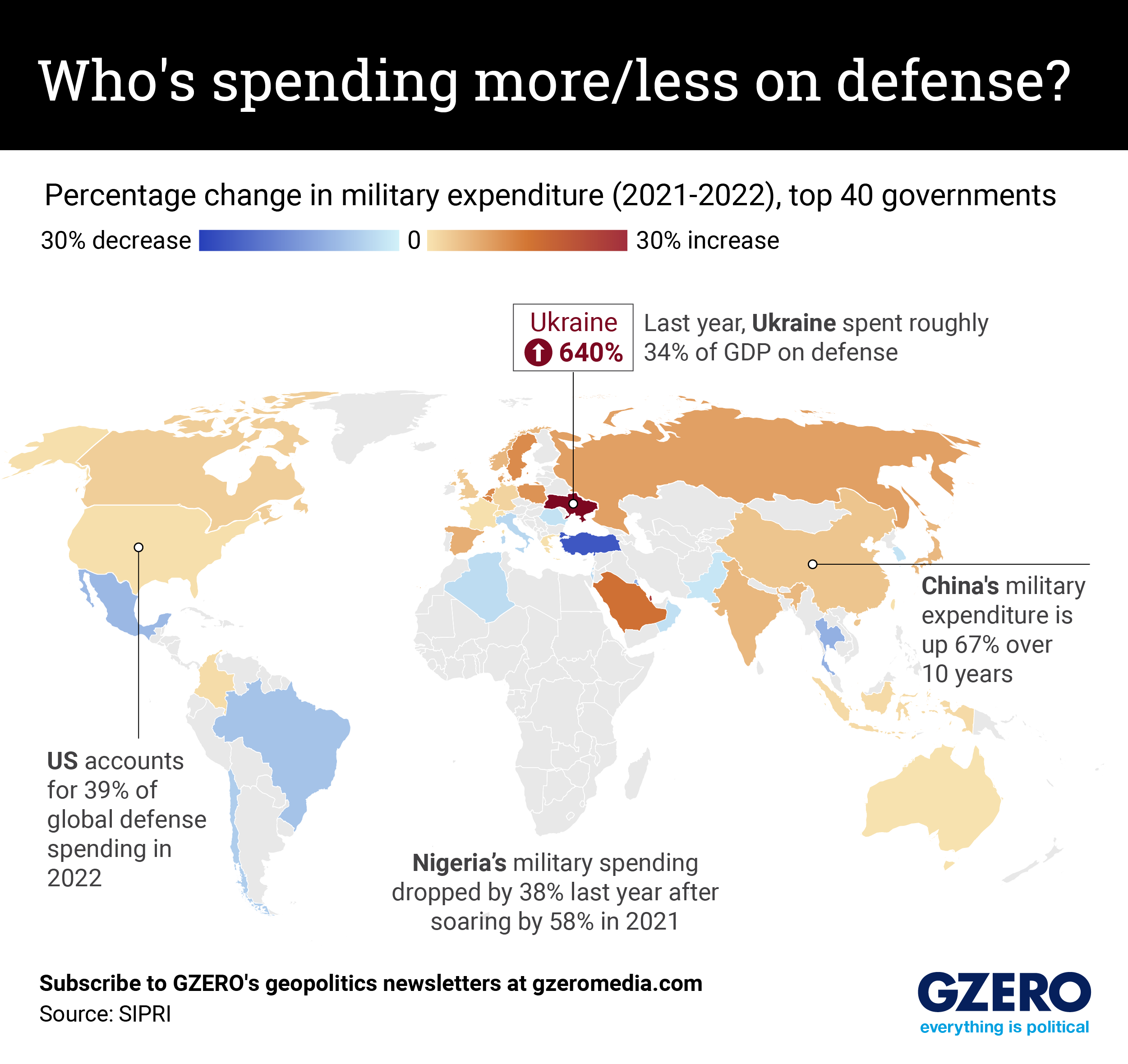April 24, 2023
Global military expenditure rose by 3.7% in 2022, according to new data from the Stockholm International Peace Research Institute. The rise was driven by increased spending in Europe in response to Russia's war in Ukraine and by some Asian countries, such as Japan, to counter China's growing military muscle.
Ukraine made the biggest increase by far, shelling out seven times as much as it did the year before the Russian invasion. Russia's expenditure, meanwhile, rose nearly 10%. But, oddly enough, some countries actually invested less in defense despite global geopolitical uncertainty and rising threats. This included Turkey, which is suffering an inflation-fueled economic crisis that's eating into the military budget.
We take a look at how defense expenditure changed over the past year across the top 40 biggest spenders.
From Your Site Articles
More For You
Bad Bunny during the Super Bowl LX halftime show press conference at Moscone Center.
Kirby Lee-Imagn Images
100 million: The number of people expected to watch the Super Bowl halftime performance with Bad Bunny, the Puerto Rican superstar and newly minted Album of the Year winner at the Grammys.
Most Popular
Think you know what's going on around the world? Here's your chance to prove it.
- YouTube
An imminent US airstrike on iran is not only possible, it's probable.
Americans are moving less — and renting more. Cooling migration and rising vacancy rates, especially across the Sunbelt, have flattened rent growth and given renters new leverage. For many lower-income households, that relief is beginning to show up in discretionary spending. Explore what's changing in US housing by subscribing to Bank of America Institute.
© 2025 GZERO Media. All Rights Reserved | A Eurasia Group media company.
